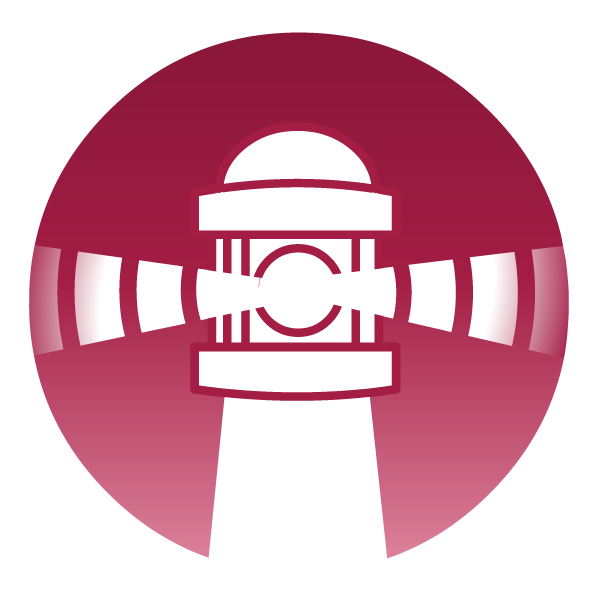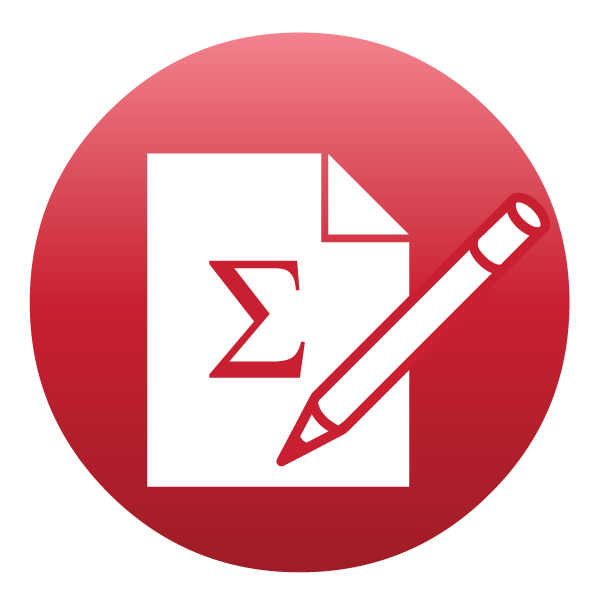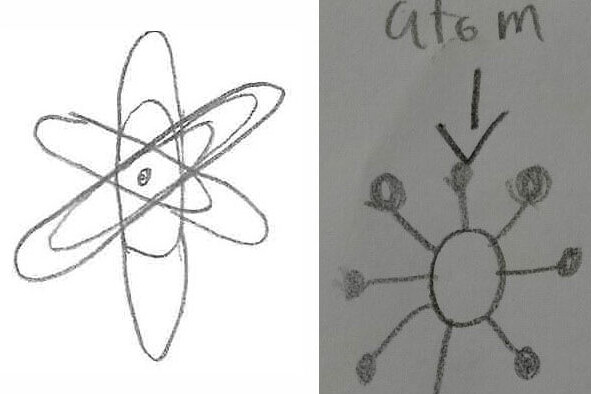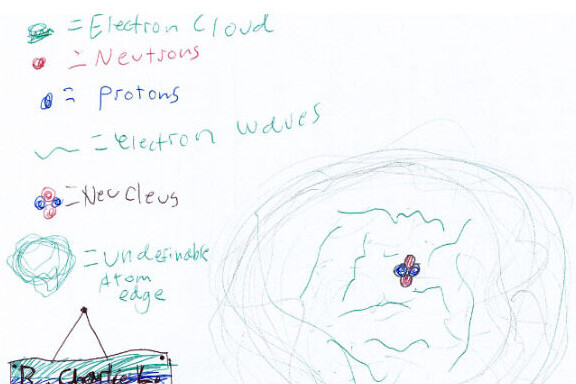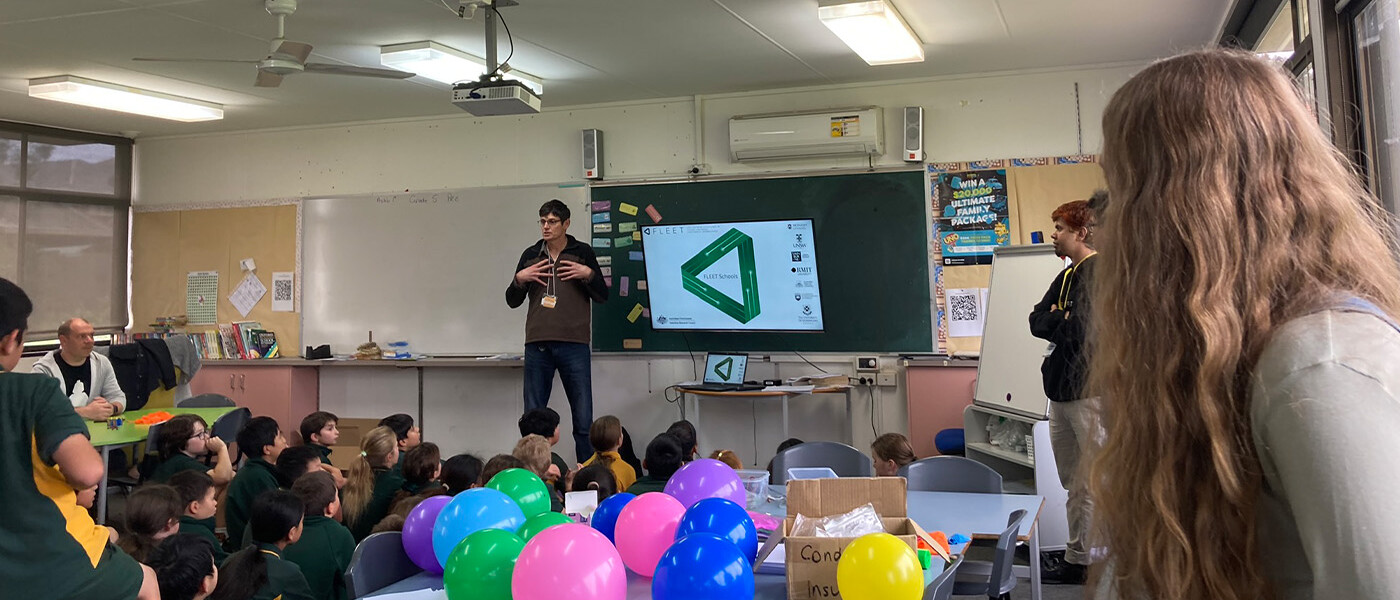
FLEET's hands-on quantum workshops were designed to engage primary and lower-secondary school students with quantum physics, while the Centre's secondary school 'quantum 101' lesson aimed to develop a ‘low maths’, intuitive level of quantum understanding.
In 2023 FLEET has developed a hands-on workshop to engage primary and lower-secondary school students with quantum physics, talking about how electricity and circuits work at the quantum level.
Primary students can learn quantum physics, so why not teach it?
Pre- and post-workshop evaluation activities were embedded into the quantum circuit workshops helped FLEET understand the impact and effectiveness of the program, showing that the students:
- successfully conceptualised the quantum model of an atom, and understood that electrons have a wave-like behaviour
- learned that the flow of electrons is necessary to generate electrical energy
- began to conceptualise the nature of electrical resistance at the quantum level and could link this to FLEET’s mission to develop low-energy electronics
- could think critically about the unsustainable energy consumption of digital technologies.
Why teach quantum to primary school (or non-science focussed secondary school) students?
It is well-accepted now that Australia’s future industries will include a higher proportion of quantum technologies.
FLEET’s part towards building the quantum workforce that will support such a future includes an impressive 240 quantum-skilled PhD and postdoctoral graduates.
But we believe there is more we can do towards building a quantum-savvy workforce, and quantum-savvy community. We believe that process begins well before ‘quantum 101’ in a university physics degree.
“There are many opportunities to teach quantum,” says FLEET outreach coordinator Dr Jason Major, who developed the primary schools program.
“The world we inhabit and interact with exists because of quantum physics. Everything from mobile phones (superposition and band theory) to solar panels (energy quantisation) exist because of our understanding of quantum physics. Even energy from the Sun only occurs because of quantum physics (tunnelling).”
“Despite this, there is a disconnect between science taught in schools and science of the modern world. Our primary-school curricula lack any topics on quantum concepts.”
FLEET’s quantum circuits workshop, made available to schools via the FLEET Schools resource (which schools will access beyond 2024 via the national digital learning repository Scootle), will help primary students build familiarity with quantum concepts and the physical reality of how the world works.
Seeking 'intuitive' quantum understanding at secondary school level
In addition FLEET has integrated quantum fundamentals into the Year 10 Future Electronics unit running at John Monash Science School, using a ‘low maths’ and intuitive level of quantum understanding to explain phenomenon key to the operation of semiconductor electronics.
As well as covering the history of semiconductors and computing, as far as we know this is the first introduction to superfluids and topological materials at any Australian secondary school. For most students, it has also been their first introduction to quantum science.
An extracted ‘quantum fundamentals’ lesson developed for that unit has also been delivered as a standalone lesson for Year 9 and Year 10 students at other schools, aimed at building some ‘intuitive’ understanding of quantum science before formal quantum teaching begins at Year 12.
(And importantly, thus potentially reaching some of the over 90% of students who never go on to study Year 12 physics.)
“I’d like to see a much-wider application of quantum ‘education’,” says FLEET communication coordinator Errol Hunt, who developed the Future Electronics lesson. “Not just at university level, not just for school students, and not just aimed at encouraging study/careers in physics or quantum science (although we should also do all these things).”
“I would like to see us educating all Australians better on quantum science. This is partly about equity and fairness, but it’s also about nurturing a ‘holistic’ quantum-literate society. I’d like to see our future science undergrads sitting down to ‘talk quantum’ at the breakfast table with Mum, Dad and their siblings.”
“Improved understanding of quantum science amongst both students and public will better prepare Australia to participate in a quantum future.”
Schools resources on Scootle:
Also see FLEET outreach impact reports.
